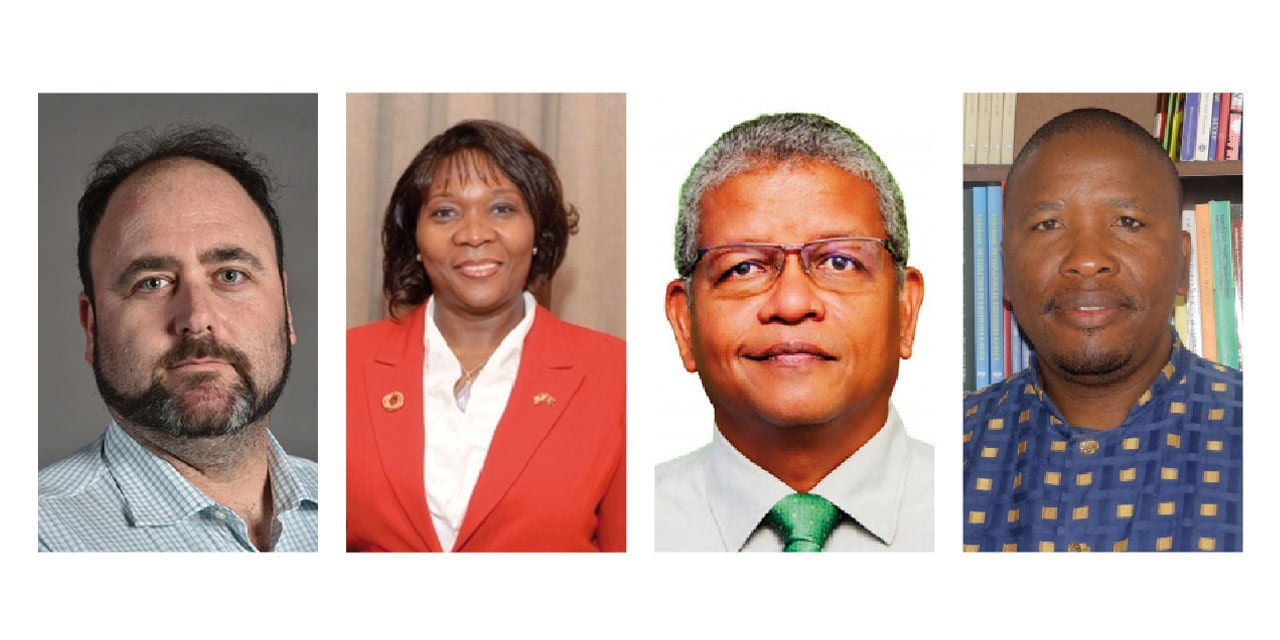Moses Magadza
WINDHOEK – A call has been made for Members of Parliament to support efforts to bring about fair and credible elections that deliver electoral justice.
The call comes in the wake of increasingly tightly-contested elections and electoral disputes in the SADC Region.
Victor Shale, the Principal Consultant at Shalestone Elections & Governance Consultants made the call when he addressed parliamentarians. The MPs represented their countries on the SADC Parliamentary Forum’s Standing Committee on Democratisation Governance and Human Rights, last week.
He said electoral contests in the SADC region and Africa had become “highly competitive and often followed by disputes”, with different interpretation of the rules “or real or perceived violation of the rules” often the bone of contention.
According to Shale, there had been incidents in Africa in which some politicians had fanned unrest during elections, merely to muddy the water or scuttle the democratic process.
He said given the highly competitive political environment in the SADC Region and in African, it was imperative that MPs work towards electoral justice. He said this could be done through ensuring that electoral processes take place in terms with the law; protecting or restoring electoral rights and giving aggrieved people a platform on which to seek redress.
On electoral dispute resolution (EDR), itself a precursor of electoral justice, Shale said in many countries, aggrieved political parties tend to turn to the courts with varying levels of satisfaction.
He said some courts in the SADC Region were “doing relatively well through impartial attendance to election disputes” than others. He held out the Constitutional Court in Malawi as a formal EDR institution that had done well.
Courts that had done well, according to Shale, had dealt with electoral disputes with impartiality, while the judicial system had been sufficiently resourced with “requisite infrastructure and resources, including setting up special electoral courts and magistracies”.
He explained: “On the other hand, others (courts) are seriously challenged for various reasons including partisan judicial officials, inadequate human and financial resources to deal with the cases, and limited timelines within which the cases are to be addressed.”
Shale said in some instances the time for resolving electoral disputes was so little and the process so complicated as to deny some aggrieved people electoral justice.
He said: “The designers of the various legal instruments have not properly thought through the processes and time required to deal with some of these things … Some Electoral Management Bodies have legal powers to settle election disputes or are mandated to create certain structures that can also deal with electoral disputes.”
In terms of time, he said it “often takes too long for electoral disputes to be addressed”. He said in some cases complaints lodged soon after an election “end up being addressed on the eve of the next election, which then defeat the whole purpose”.
Yet all is not lost. Shale said the SADC Model Law on Elections which the SADC PF developed could – if urgently domesticated and implemented – significantly help SADC Member States achieve electoral justice.
“The SADC Model Law is meant to facilitate the adoption of the SADC Principles and Guidelines Governing Democratic Elections. Electoral justice and transitional justice are embedded within the SADC Model Law on Elections,” he said.
Shale noted that peace and stability are prerequisites for socioeconomic development. He encouraged SADC MPs to familiarise themselves with the letter and spirit of the SADC Model Law on Elections, and to call for its domestication and implementation.
South Africa Member of Parliament Darren Bergman – who is the incoming Vice Chairperson of the DGHR standing committee – stressed the need for election management bodies to follow the law.
He called, also, for the strengthening of SADC PF election observation missions as well as a deeper reflection on how long observers need to be on the ground and what they should look for.
He argued that elections were “not stolen at the polls” but could be “stolen at the start of the election campaign”, when constituencies are demarcated, or the Constitution, rules and regulations are being developed.
The committee concurred and agreed on the need for SADC PF to be realistic in the constitution and deployment of election observation missions, given that elections are processes, not events.
The need to observe all electoral aspects and processes underscored. That includes determining whether or not the playing field was level and whether media coverage was fair, among other things. The need to ensure that election observers are knowledgeable with verifiable track records and integrity was also stressed.
Angolan lawmaker Josefina Diakite is the outgoing Vice Chairperson of the DGHR committee. She called for the SADC Model Law to be disseminated and domesticated.
On election observation, she said such missions must be prepared for in good time.
She said: “We need to take into account the election calendar in our region so that we can start working on time. Our national parliaments, civil society, political parties and members of the executive have to know about the SADC Model Law.”
She challenged SADC Member States to budget for election observation missions and not leave it to organisations from outside the continent.
“We can’t continue to depend on external support to carry out our missions, which are important. Our countries, our parliaments and executive branches have to fight in order to get funding for those electoral missions. Our international partners are no longer ready to fund them,” Diakite said.
Seychellois lawmaker Wavel Ramkalawan chaired the meeting. He said parliaments must work towards strengthening relevant institutions while cultivating impartiality to deliver electoral justice.
“Strong institutions are important. The judiciary must be independent and impartial. The Electoral Commission must ensure that the game is being played fairly,” Ramkalawan said.




